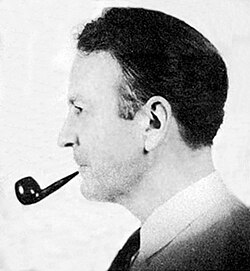Raymond Chandler Quote
I believe...that to be very poor and very beautiful is most probably a moral failure more than an artistic success. Shakespeare would have done well in any generation because he would have refused to die in a corner; he would have taken the false gods and made them over; he would have taken the current formulae and forced them into something lesser men thought them incapable of. Alive today he would undoubtedly have written and directed motion pictures, plays, and God knows what. Instead of saying, This medium is not good, he would have used it and made it good. If some people called some his work cheap (which some of it was), he wouldn't have cared a rap, because he would know that without some vulgarity there is no complete man. He would have hated refinement, as such, because it is always a withdrawal, and he was too tough to shrink from anything.
I believe...that to be very poor and very beautiful is most probably a moral failure more than an artistic success. Shakespeare would have done well in any generation because he would have refused to die in a corner; he would have taken the false gods and made them over; he would have taken the current formulae and forced them into something lesser men thought them incapable of. Alive today he would undoubtedly have written and directed motion pictures, plays, and God knows what. Instead of saying, This medium is not good, he would have used it and made it good. If some people called some his work cheap (which some of it was), he wouldn't have cared a rap, because he would know that without some vulgarity there is no complete man. He would have hated refinement, as such, because it is always a withdrawal, and he was too tough to shrink from anything.
Related Quotes
About Raymond Chandler
Chandler had an immense stylistic influence on American popular literature. He is a founder of the hardboiled school of detective fiction, along with Dashiell Hammett, James M. Cain and other Black Mask writers. The protagonist of his novels, Philip Marlowe, like Hammett's Sam Spade, is considered by some to be synonymous with "private detective". Both were played in films by Humphrey Bogart, whom many consider to be the quintessential Marlowe.
The Big Sleep placed second on the Crime Writers' Association poll of the 100 best crime novels; Farewell, My Lovely (1940), The Lady in the Lake (1943) and The Long Goodbye (1953) also made the list. The latter novel was praised in an anthology of American crime stories as "arguably the first book since Hammett's The Glass Key, published more than twenty years earlier, to qualify as a serious and significant mainstream novel that just happened to possess elements of mystery". Chandler was also a perceptive critic of detective fiction; his "The Simple Art of Murder" is the canonical essay in the field. In it he wrote: "Down these mean streets a man must go who is not himself mean, who is neither tarnished nor afraid. The detective must be a complete man and a common man and yet an unusual man. He must be, to use a rather weathered phrase, a man of honor—by instinct, by inevitability, without thought of it, and certainly without saying it. He must be the best man in his world and a good enough man for any world."
Parker wrote that, with Marlowe, "Chandler seems to have created the culminating American hero: wised up, hopeful, thoughtful, adventurous, sentimental, cynical and rebellious—an innocent who knows better, a Romantic who is tough enough to sustain Romanticism in a world that has seen the eternal footman hold its coat and snicker. Living at the end of the Far West, where the American dream ran out of room, no hero has ever been more congruent with his landscape. Chandler had the right hero in the right place, and engaged him in the consideration of good and evil at precisely the time when our central certainty of good no longer held."
